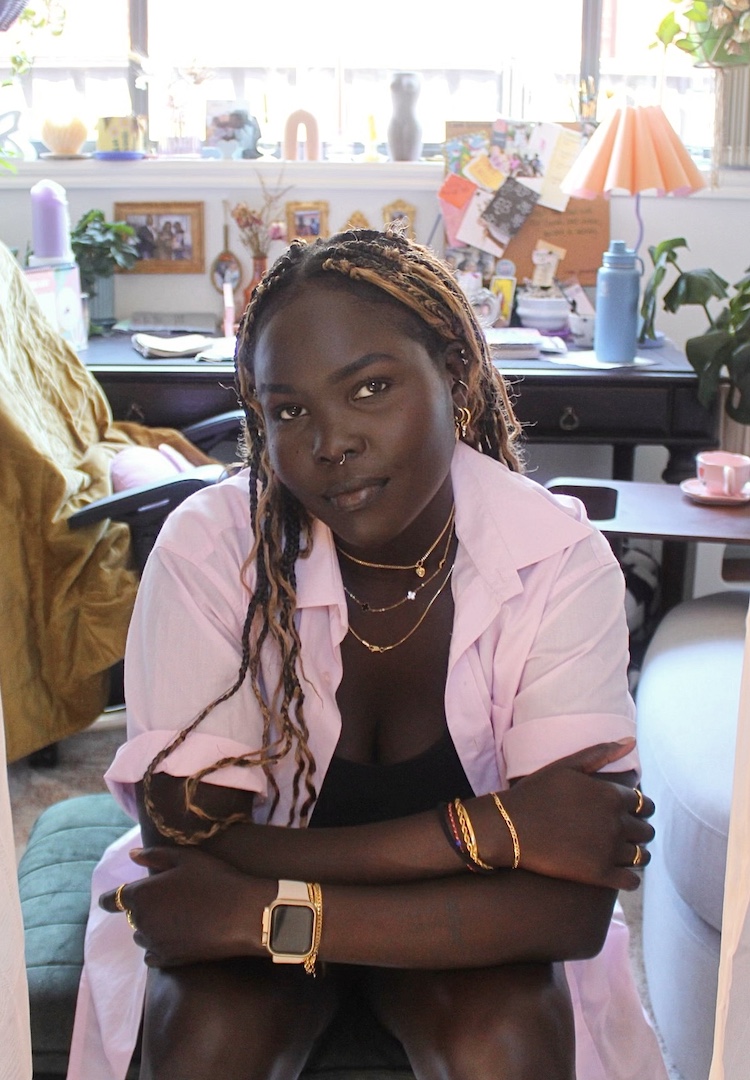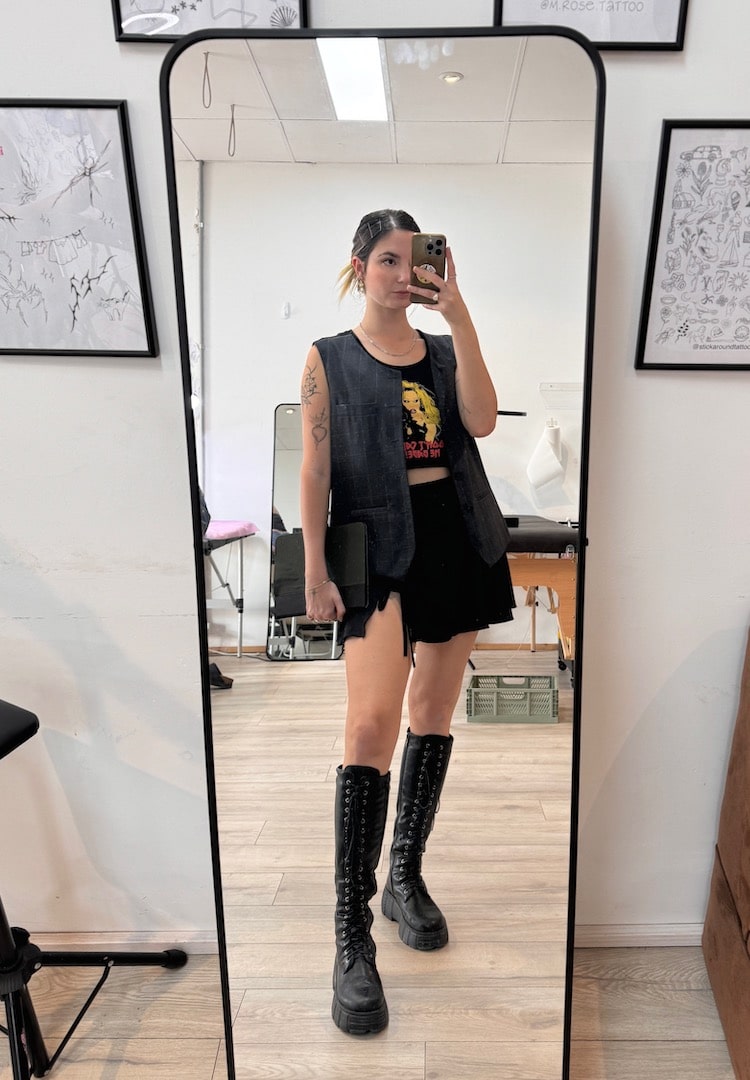Do I really need to have career goals?
WORDS By Lauren Payne
Do I really need to have an end goal for my career?
I’ve known that I wanted to be a writer from a very young age. The plan was always to have a full-time nine-to-five office job, interviewing exciting people and writing stories about things I enjoyed. That was my career goal from about the age of nine, and I achieved that goal in my early twenties.
I can honestly say that although I worked hard to get that full-time role, I was very lucky. Not everyone is able to achieve their career goals, let alone do it years earlier than they anticipated. Reaching my career goal at 23 was something I never thought was possible, and I was thrilled. However, after three months, the company I worked for folded, and I was made redundant.
For more advice like this, browse through our Life section.
The redundancy was unexpected, but what shocked me more was the fact I’d reached a lifelong career goal and now, I had no idea what I wanted to do next. As someone who’s always had something to strive for in her work life, not having an end goal for my career felt so strange.
I sometimes found myself wondering whether I wasn’t trying hard enough to set new career goals for myself, but then I thought, does it actually matter? Do I really need to have an end goal for my career? Or can I just do work that I find fulfilling and take on opportunities I think would be interesting and see where I end up? Do I really have to chase a specific position if it’s not something I want?
To help me answer all of these questions, I reached out to career coach and the founder of Upstairs Coaching, Alex Kingsmill, who explained to me that creating career goals isn’t as black and white as I initially thought.
Creating career goals
Alex says many people find it hard to create realistic career goals for themselves. This is because we’re asked to create these goals from a very young age, without any practical information.
“We’re always encouraging people to think intellectually about their career options. People often decide about a career direction based on very little real information, on just some kind of intellectual idea. Then they go for it, they might achieve it and then think, ‘What the hell?! This isn’t what I wanted, this doesn’t suit me’, or it’s just not a great fit.”
If you’re thinking about creating a set of career goals or are contemplating whether you even need a set of career goals, Alex recommends focusing on what the purpose of work is in your life first.
“For some people work is a way to make money so they can facilitate all the other richness in their lives and that’s terrific. If that’s the case for you and you’re happy to just meander and find something that will pay you enough to facilitate that life, then I don’t think there is actually any need for some big goal.
“Also, if your purpose is to have a massive impact, a positive impact, to help people, and there’s a certain way in which you plan to do that, like leveraging strengths and values, then there’s absolutely room for a conscious, focused goal. There’s room for all of that in-between but working out what purpose work has for you and what you would want to do to make that happen, that might be the way to go.”
Figuring out the purpose of your work can sound overwhelming. To make things easier though, Alex suggests trying out different jobs and thinking about how those jobs affect you. Ruminating on what you like, or don’t like, about the role may help you decipher what you want out of your work life and what you’d prefer to be doing day-to-day.
“It’s about bringing in awareness to the process and not in a heavy-handed way, but kind of getting clear on what kind of life you want to live and what matters to you. How you tend to think, how you make decisions and what might goal setting and striving look like for you.
“It can be overwhelming because people tend to think of it in big terms. It’s about working out what matters to you, deciding on where you’d like to be, looking at where you are now and what resources you have available to you and then creating a plan and putting it into effect. And that can be about what to eat for lunch! It can also be about how to change the world through your career. There’s a whole range, it’s just how you think about it.”
What if you’ve achieved your career goals?
So, you’ve thought about your ideal life, what purpose your job plays for you, and what kind of career aligns with your values and strengths. You then set a series of career goals and in the blink of an eye, you’ve achieved them. Now what?
Should we be creating new career goals when we’ve achieved the ones we’ve previously set for ourselves? Or can we one day completely ditch the idea of career goals and just do whatever makes our hearts sing and see where the wind takes us? Well, according to Alex, everyone can benefit from having a set of goals, but no one has to necessarily have career goals.
“I would never say that someone should have a career goal. There’s so much research about goals and how it focuses your attention, sustains fulfilment, boosts well-being and all that good stuff. That said, you can get all of that from different types of goals – you don’t necessarily need to have a career goal.”
If you’re not keen on setting career goals for yourself and are happier just going with the flow, Alex says the best way to keep your career moving is to simply go out and do what you love to do. You may not have any goals in mind, but by putting yourself out there and trying some new positions on, you’ll still be able to create a career you can thrive in.
“We tend to overthink and under do in relation to career hunting. We tend to think about it, decide on something, work towards it and then have a crisis. Obviously, you’ve got to come up with some options, so come up with some ideas and open up to some possibilities. Start talking to people, start doing a side project, or volunteer – all of that stuff. That’ll all help you find some kind of direction rather than just thinking about it.”
You can always change your mind
People change over time. The way we think about the world changes and with every new experience we have, our views, ideas and opinions change along with them. When it comes to creating career goals for ourselves, it’s important to remember that these can change with us as well.
Alex says we must make sure we’re checking in with ourselves and our career goals occasionally, to make sure they’re still working for us (pun very much intended!).
“People often hold their goals so tightly and forget to keep on checking in. It’s this kind of constant process of exploring, refining, recalibration, and it does sound exhausting, but it’s actually quite energising when you know how to do it and it’s aligned with yourself, your values and your greater purpose.”
Career goals are wonderful to have. They give you direction, they give you purpose, and they give you a sense of security in that you have some idea about where you’ll be in the future. However, if you’ve achieved your career goals earlier than expected, you feel like your goals are unrealistic, or you’ve simply changed your mind, you can always take a step back and re-evaluate them.
On the other hand, if you wake up one day and suddenly decide that your career goals aren’t helpful, that they’re somehow placing an unnecessary amount of pressure on you to focus more on your job, rather than on your lifestyle and the things that bring you joy, then you can ditch them.
There’s nothing wrong with completely getting rid of your career goals because the purpose of work for you has changed. You don’t have to have a set of career goals, but you can if you want to. It’s all about how you feel about your career, how it affects your everyday life and how you want to live.
For advice on how to set career goals (and achieve them) try this.










